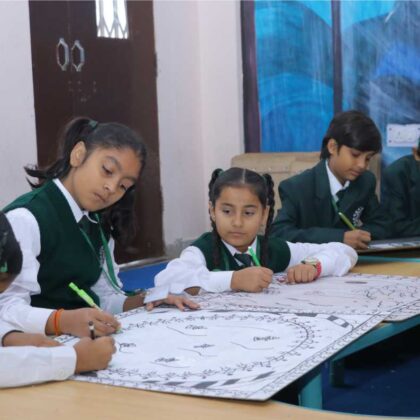
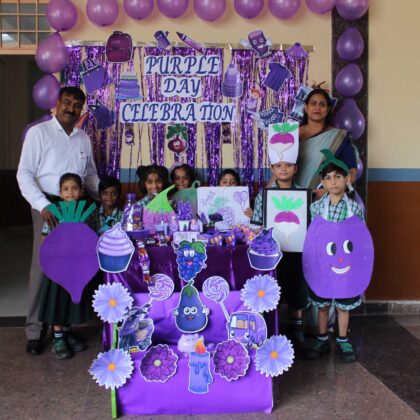
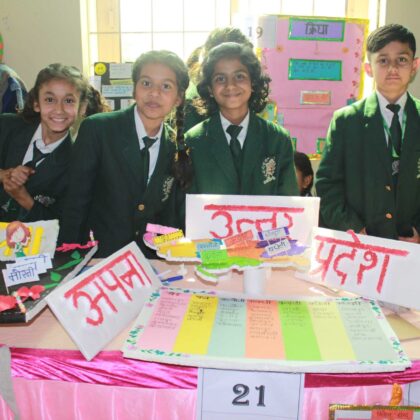
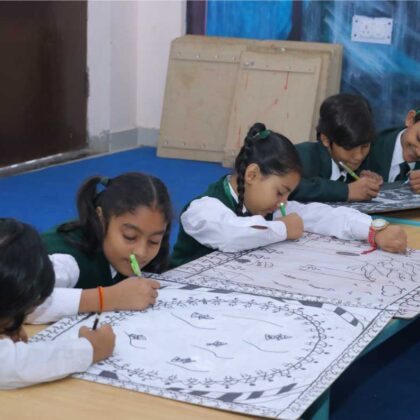



Performing and Fine Arts
Performing arts and Fine arts being an integral part of education provide students with the opportunity to engage the mind, the body, and emotions. Students can explore and express great themes and ideas through their performance. This allows children to develop their self- confidence and self- belief. With improved self – confidence and self- belief children go on mastering many more skills that will equip them for life. Children discover their voices, become confident and develop empathy and ethical insight into the contradictions and paradoxes of the human condition. They grow in understanding of not being only human but to be good, dignified, kind and compassionate. Another advantage of Art integration with the mainstream subjects is, that it not only makes the teaching and learning process joyful, but it also has a positive effect on the development of communication skills, reflection and inquiry skills, unconditioning of the mind which leads to higher confidence level and appreciation for aesthetics and creativity.
“Literature, music and the arts, all are necessary for the development and flowering of a student to form an integrated total personality.”
Rabindranath Tagore
We perceive art education as a tool for development of aesthetic sensibility among learners to enable them to respond to the beauty in colour, shape, for, movement, and sound. Art education and appreciation of one’s cultural heritage go hand-in-hand and reinforce the understanding of each other.




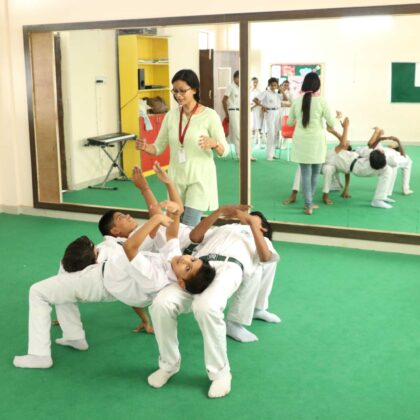
Dance
Dance is more than the exploring of different ways to make a shape or learning a series of steps to music; it is a way of moving that uses the body as an instrument of expression and communication. Through dance students learn teamwork, focus, and improvisational skills. Dance awakens new perceptions in children, which help them learn and think in new ways. Henceforth, we provide exclusive training to the students in Indian and Western dance. Dance is taught to the students across all grades by an experienced and erudite mentor. Students are made conversant with manifold dance forms such as Odissi, Kathak, Bharatanatyam, folk, etc. and Western dance forms like Jazz, Contemporary, Hip Hop, Free Style, Rhythmic gymnastics and so much more!
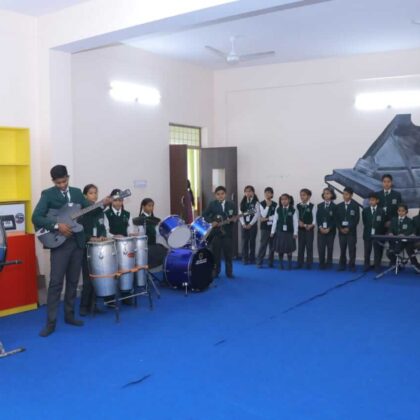
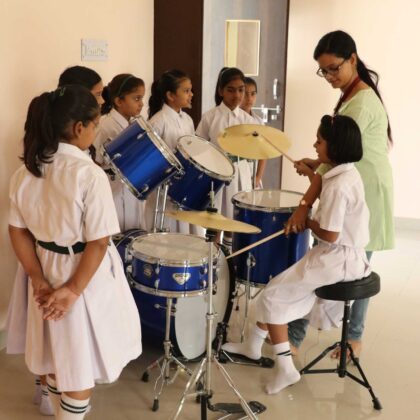
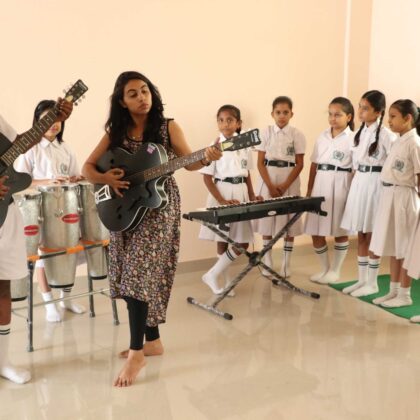


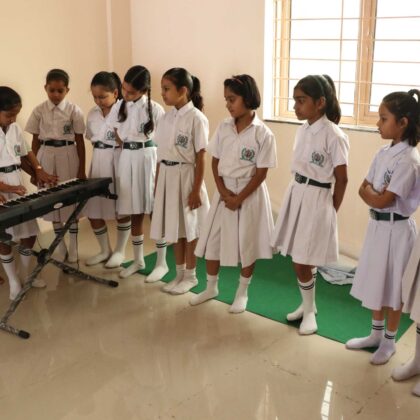
Music
Music classes are a great way to break class monotony. It helps students to unwind and get a break from their classes. Music classes also help improve and spur language development because music is closely related to our everyday speech and conversation. The part of the brain that supports language and learning also supports music, so one can make a connection as to why music, learning, and languages are closely aligned. Music also helps students to develop good reading skills. Learning a musical instrument not only sustains and feeds the brain, but it also improves so many other cognitive and physical aspects of the human body which is why we have a plethora of musical instruments for the student to learn and play. Which is why our music room come equipped with plethora of music instruments and a professional mentor to provide the students with necessary handholding to walk them through their musical journey.

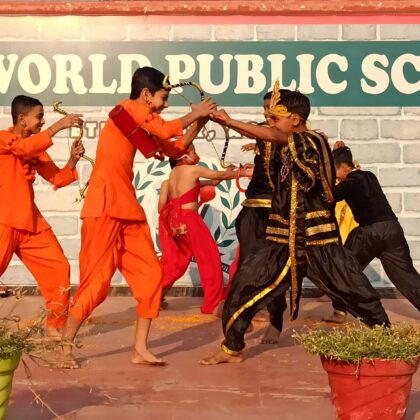

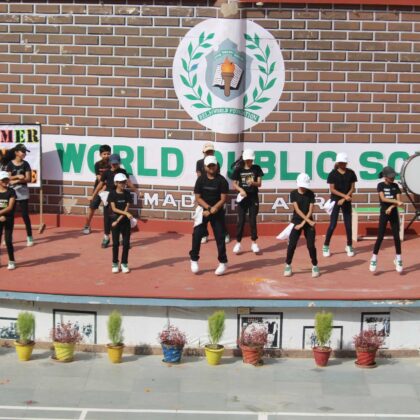
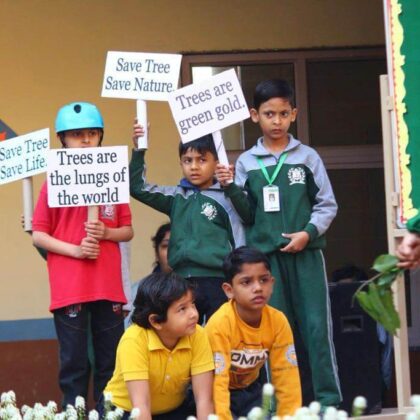

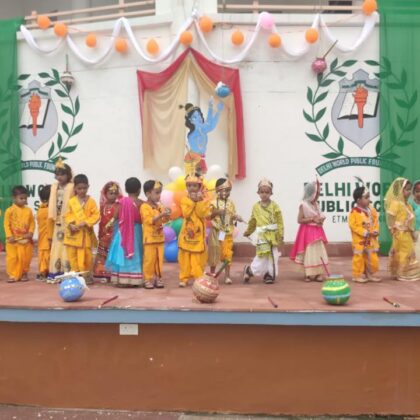



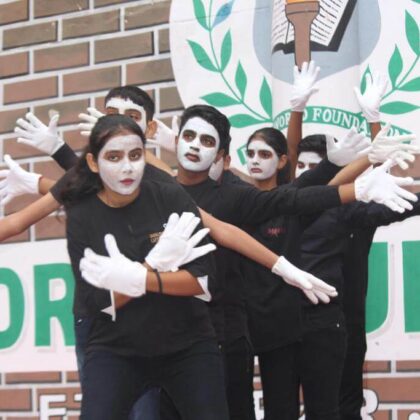
Theatre
Today, an increasing number of communities are realizing how important theatre is to children’s development. Performing arts teach children how to think creatively through imagination. Creative thinking skills are critical in the world of business leaders, where the ability to create solutions to problems is a necessary and valued asset. Through theatre, audiences are immersed in stories about characters from every background imaginable. Live shows teach children how to appreciate people of all kinds and how to respect other points of view. Additionally, characters from historic time periods give viewers a chance to learn about events and people from the past. Not only is it important to learn about different kinds of people and aspects of life, but these shows also give a glimpse into other people’s lives. Theatre allows you to step into someone else’s shoes and see life from their point of view. This teaches young people lessons of empathy and cultural relativity. Theatre exposes young people to new vocabulary and ways of communicating. Through the arts of dance, acting, and music, children learn how to communicate in a variety of unique ways. Children need imagination to grow, create, think, and play. Theatre is the single most valuable place where kids can explore the endless possibilities of their imaginations and what they can do. We believe that without theatre, children not only miss out on an amazing artistic experience, but they lose the chance to experience an endless amount of learning opportunities. With exposure that not only raises school performance, but also encourages creativity, culture, communication, patience, morals, and imagination, an afternoon at the theatre is something that cannot be overlooked. To encourage all of this and more we are constantly encouraging our students to partake in theatricals, we encourage learning through action which is why you’ll often find our students performing new lessons in the school amphitheater for lessons and on the stage for special assemblies.

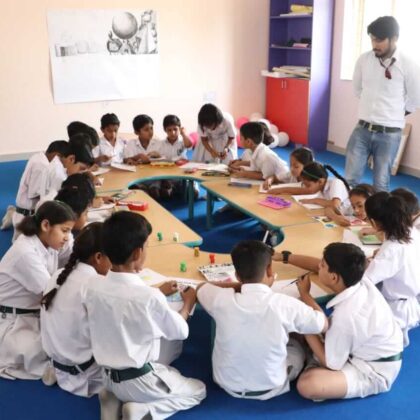

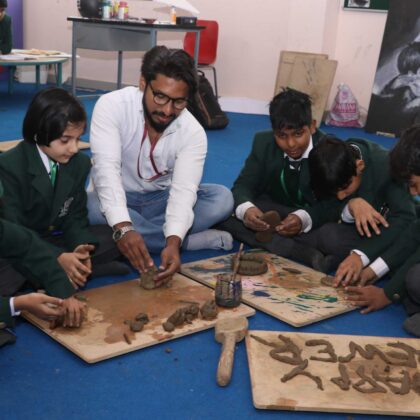

Arts and Crafts
In today’s academic scenario, the creative arts have all but entirely disappeared from the Indian education system. There was a time when creative classes were compulsory for students, and were given their due importance by parents, teachers, and kids alike. However, the current atmosphere of mounting academic pressure and curriculum goals has pushed Arts and Crafts to the sidelines. The burdensome emphasis placed on academics and the growing neglect of extra-curricular activities is certainly not unheard of. However, unfortunately in most cases, the concerned parties are still unaware of the contribution of those very subjects to a child’s academic and personal growth. Learning the arts and crafts doesn’t just foster the creative development of a child, but also assists in advancing and refining his or her core skills, which in fact goes towards boosting academic achievement as well. Having extra-curricular clubs in which young artists can pursue their hobby can engage and augment a child’s cognitive and critical thinking abilities immensely. Cognition refers to the brain’s conscious mental activities, and includes thinking, reasoning, understanding, learning, and remembering. As such, the development of these functions is vital for all activities undertaken by a child.


